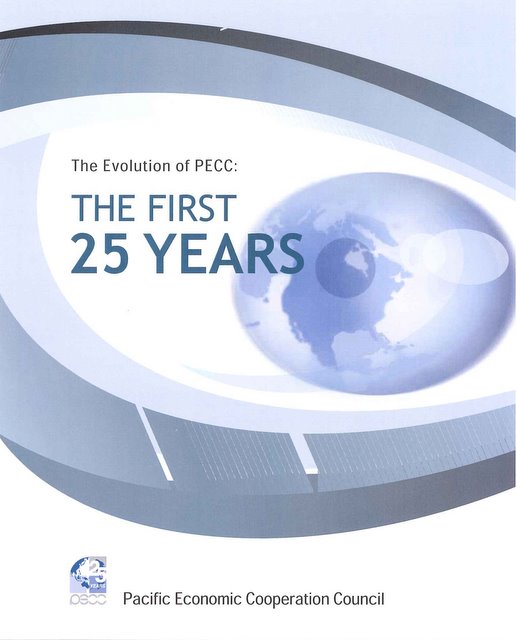PECC is a unique tripartite partnership of senior individuals from business and industry, government, academic and other intellectual circles.
All participate in their private capacity and discuss freely on current, practical policy issues of the Asia Pacific region.
BROAD, EXTENSIVE NETWORK & POLICY ORIENTED PROGRAM
- Established in 1980, PECC now has 25 Member Committees, including one associate member, and two institutional members. Each Member Committee brings together leading thinkers, and decision makers from government and business in an informal setting to discuss and formulate ideas on the most significant challenges facing the Asia Pacific.
- It regularly develops and advocates regional policy initiatives to aid in the stable economic development of the region.
- PECC’s regional community building efforts led to the establishment of the official APEC process in 1989, the Council is one of the three official observers of the APEC process.
- PECC is policy oriented, pragmatic and anticipatory. Its work program aims for better cooperation and policy coordination in areas including trade, investment, and finance.
ONLY NON-GOVERNMENTAL OFFICIAL OBSERVER OF APEC
- is the only non-government official observer of APEC.
- PECC has provided information and analytical support to APEC ministerial meetings and working groups. Also it channels and facilitates private sector participation in the formal process.
OBJECTIVES & PREMISES
OBJECTIVES
- Aims to serve as a regional forum for cooperation and policy coordination to promote economic development in the Asia-Pacific region, based on the following premises:
PREMISES
- The respective strengths of business and industry, government, academic and other intellectual circles can be better focused to promote the acceleration of economic growth, social progress, scientific and technological development and environmental quality in the region.
Trade, joint ventures, mutual aid and other forms of linkage, when developed in a spirit of partnership, fairness, respect and genuine cooperation, strengthen the foundation needed for a prosperous, progressive and peaceful Asia Pacific region.
HISTORY
PECC's first meeting (PECC I), which was then called "the Pacific Community Seminar",was held in September 1980 in Canberra, Australia, at the initiative of Mr Masayoshi Ohira and Mr Malcolm Fraser, then Prime Ministers of Japan and Australia.
The Seminar was attended by 11 economies (Australia, Canada, Indonesia, Malaysia, Japan, Korea, New Zealand, the Philippines, Singapore, Thailand and the United States) and Pacific Island states (Papua New Guinea, Fiji and Tonga). Typically, each delegation comprised one senior government official, one business leader, and one academic or professional member. Representatives of the Asian Development Bank, PBEC and PAFTAD were also present.
The Canberra meeting called for the establishment of an independent, regional mechanism to advance economic cooperation and market-driven integration. A vital characteristics of the new body, asserted there, was its independent, unofficial status which would permit it to address economic issues and measures free from constraints of formal governmental policies and relationships. It, hence, agreed on the need for an informal process involving business and independent research institutions alongside governments.

In 2005, on the twenty-fifth anniversary of its establishment, PECC published a history of the organization. The entire book and individual chapters can be downloaded here:
Preface: Kihwan Kim and Soogil Young
Overview: Andrew Elek
Chapter 1: Building Momentum: The Movement Toward Pacific Economic Cooperation Prior to 1980: Mark Borthwick
Chapter 2: The Birth of PECC: The Canberra Seminar: Andrew Elek
Chapter 3: PECC’s Formative Years: Institutionalization of a Process: Hadi Soesastro
Chapter 4: Setting the Agenda: Achieving Relevance: Soogil Young
Chapter 5: Back to Canberra: Founding APEC: Andrew Elek
Chapter 6: PECC’s Intellectual Contribution to APEC: Some Case Studies: Hadi Soesastro
Chapter 7: The Asian Financial Crisis – A Turning Point? Kihwan Kim
Chapter 8: Looking Forward: Emerging Challenges: Jusuf Wanandi
Chapter 9: PECC, APEC and East Asian Economic Cooperation: Prime Minister Ohira’s Legacy: Hugh Patrick
Annexes
1. Annex 1: PECC Chairs, Coordinating Group Chairs and Director-Generals of the PECC Secretariat
2. Annex 2: Pacific Economic Cooperation Conferences and General Meetings
3. Annex 3: PECC Member Committees
4. Annex 4: PECC Standing Committee Members
5. Annex 5: Vancouver Statement